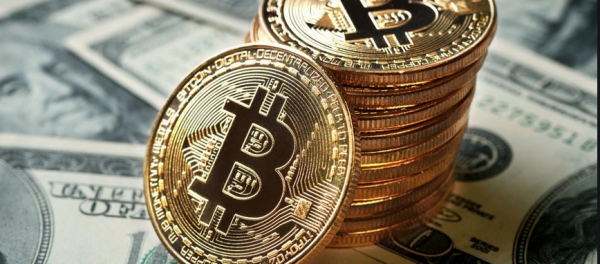What Do Alternative Payment Methods Offer to Gamblers?
The gambling industry is a multi-billion pound industry that is constantly evolving. In recent years, there has been a growing trend of using alternative payment methods for gambling. These alternative payment methods offer a number of advantages over traditional payment methods, such as credit cards and debit cards.
One of the main advantages of alternative payment methods is that they offer greater anonymity. When you use a credit card or debit card to gamble, your name and other personal information is linked to the transaction. This can make you vulnerable to identity theft and fraud. Alternative payment methods, on the other hand, do not require you to provide any personal information. This makes for a much more secure option when it comes to gambling, especially with the significant number of breaches of betting site databases over the years.
Another advantage of alternative payment methods is that they offer faster transactions. When you use a credit card or debit card to gamble, the transaction can take several days to process. This can be frustrating if you want to start gambling right away. Alternative payment methods, on the other hand, typically process transactions much faster, resulting in immediate wagering once the deposit is initiated.
In addition, alternative payment methods offer a wider range of options. Not all credit card companies allow transactions with online gambling sites. In fact, some of the larger credit card issuing banks will not allow their cards to be used for gambling (i.e. Wells Fargo in the United States). Alternative payment methods, on the other hand, are much more widely accepted. This means that you are more likely to find a payment method that works for you.
And, because they are more secure, APMs reduce fraud and chargebacks that are common with traditional methods.
The industry has embraced various banking options at online casinos for many years now and there are a number of attractive alternative payment methods to use for gambling. Among the more popular, e-wallets and prepaid cards. By offering these payment methods, gambling operators can attract new customers who may not have otherwise gambled with them or are not quite educated on how to use cryptocurrencies.
E-wallets are a type of online payment system that allows you to store money and make payments without having to enter your credit card or bank account information each time, again eliminating the potential for your personal banking information to be compromised and show up on the dark web. The most popular e-wallets for gambling include PayPal, Skrill, and PaySafe.
Prepaid cards constitute a type of card that can be loaded with money and then used to make purchases. Prepaid cards are often used by people who do not have a credit card or bank account. Some of the most popular prepaid cards for gambling include Paysafecard and Entropay. These can be found in most major retail outlets as well as convenience stores.
And then there are the Cryptocurrencies like Bitcoin. These are digital or virtual tokens that use cryptography for security and now embraced by the gambling sector. They are decentralized, meaning digital currencies are not subjected to government or financial institution control or scrutiny. Some of the most popular cryptocurrencies for gambling include Bitcoin, Ethereum, and Litecoin.
While tempting, Gambling911.com encourages individuals to utilize a third party wallet as opposed to sending and receiving funds directly through an exchange. The third party wallets add a solid layer of security and anonymity. Just like with banks, some crypto exchanges frown on the use of their services to facilitate gambling. There have been cases of exchanges having the ability to tie their addresses to gambling.
It is also recommended to complete transfers immediately. For example, Bitcoin typically takes 45 minutes to be confirmed once sent. The price fluctuates daily. If the funds are not converted to one's preferred currency, the amount can often increase in the gambler's favor, or decrease. One should consider other forms of cryptocurrency that are less volatile. Tether/USDT is tied to the US Dollar, for example, and the price barely changes. We would note that it is common for cryptocurrencies to be received at all hours of the day and night, including Sundays.
All of these methods of paying for goods/services will be driven by a number of key industries, including gambling. Among the other drivers for the technology are the e-commerce and retail space which, since the COVID-19 pandemic, has stayed strong and is likely the new benchmark for how people shop.
And, there are considerable risks that go along with the increased use of APMs, namely that people might be more willing to act more recklessly when gambling online with alternative payment methods than in land-based venues, potentially leading to greater expenditures and increased losses.
Indeed the use of alternative payment methods in the gambling industry has also been associated with problems related to self-regulation and self-control on spending decisions.
Fundamentally, an interesting dichotomy exists within the changing landscape of online gambling, particularly within the UK. The easier and faster alternative payment methods can facilitate the withdrawal, disposal and securing of funds for customers anywhere in the world at any time, it stands to reason that it will be easier for people to lose some control of their impulses related to gambling and playing online casino games.
But even with the exponential increase in online gambling facilitated by digital payment methods, problem gambling prevalence rates have held steady or declined globally during the technology’s proliferation.
Nevertheless, regulators have taken notice. It is essential that they take proactive measures to ensure that digital payment methods are used safely in the gambling industry. This responsibility also extends to the government. In the UK, for example, the long-awaited gambling White Paper was introduced to parliament for the first time last month.
The document was designed with industry collaboration to update the 2005 Gambling Act to protect and regulate the industry in the wake of the smartphone boom.
Measures proposed in the bill, such as affordability checks, have been panned by the industry but praised by gambling addiction lobby groups. Clearly the alternative payment method industry will be a key player in the changing landscape to adhere to these new regulations and this will undoubtedly result in the gambling industry and regulators working together to educate consumers on responsible gambling practices.
What is clear is that as the alternative payment method industry grows and streamlines through other avenues like online retail, hospitality and global commerce, the product and service quality offered to would-be gamblers will heighten but so too could the risk posed to gamblers as a result.
- Aaron Goldstein, Gambling911.com














